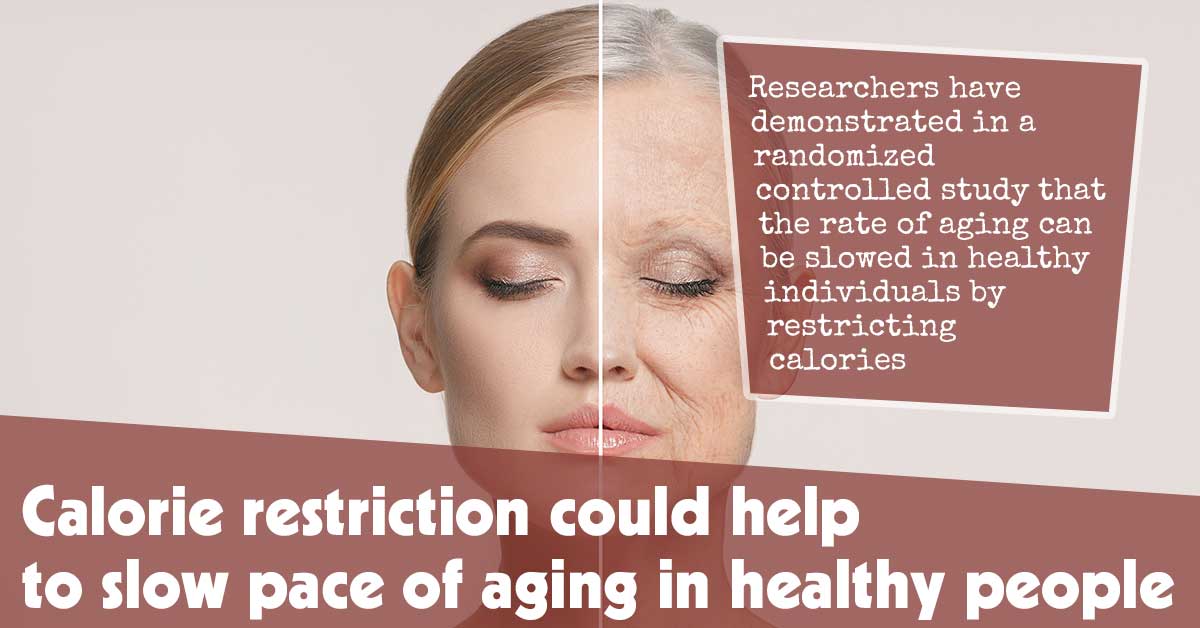Researchers have demonstrated in a randomized controlled study that the rate of aging can be slowed in healthy individuals by restricting calories. The calorie restriction treatment slowed the rate of aging measured from the blood DNA methylation of participants making use of the DunedinPACE algorithm (Pace of Aging, Computed from the Epigenome).1✅ JOURNAL REFERENCE DOI: 10.1101/2021.09.21.21263912
The effect of the treatment on DunedinPACE was representative of a 2 to 3% slowing in the rate of aging, which translates in other research to a 10 to 15% mortality risk reduction, an effect comparable to quitting smoking.
The study randomized 220 healthy individuals to either a 25% calorie-restricted or normal diet for 2 years.
To measure biological aging in the individuals, blood samples collected from trial participants were analyzed at baseline and again after 12 and 24 months of follow-up.
Because people live for a long time, it isn’t practical to follow them until aging-related disease differences are seen. Biomarkers were instead used that measured the rate and progress of biological aging throughout the study duration.
DNA methylation marks extracted from white blood cells were analyzed. These marks are chemical tags on the DNA sequence regulating the expression of genes that are known to change with aging.
Three measurements were focused on in the primary analysis of the DNA methylation data, quite often referred to as “epigenetic clocks”. The first 2, the GrimAge and PhenoAge clocks, determine biological age, or the chronological age at which the biology of an individual would appear “normal”.
These measurements can be regarded as “odometers” providing a static measure of the amount of aging an individual has experienced. The 3rd measure used was DunedinPACE, which estimates the rate of aging, or the pace of biological deterioration over time. DunedinPACE can be regarded as a “speedometer”.
The treatment did not affect other epigenetic clocks in comparison to the DunedinPace results. The difference in results indicates that dynamic ‘pace of aging’ measures such as DunedinPACE could be more sensitive to the treatment effects than static biological age measures.
Although it was found that calorie restriction slowed the rate of aging in humans, calorie restriction may not be for everyone. The results are nevertheless significant because they provide proof that slowing human aging could be possible.



